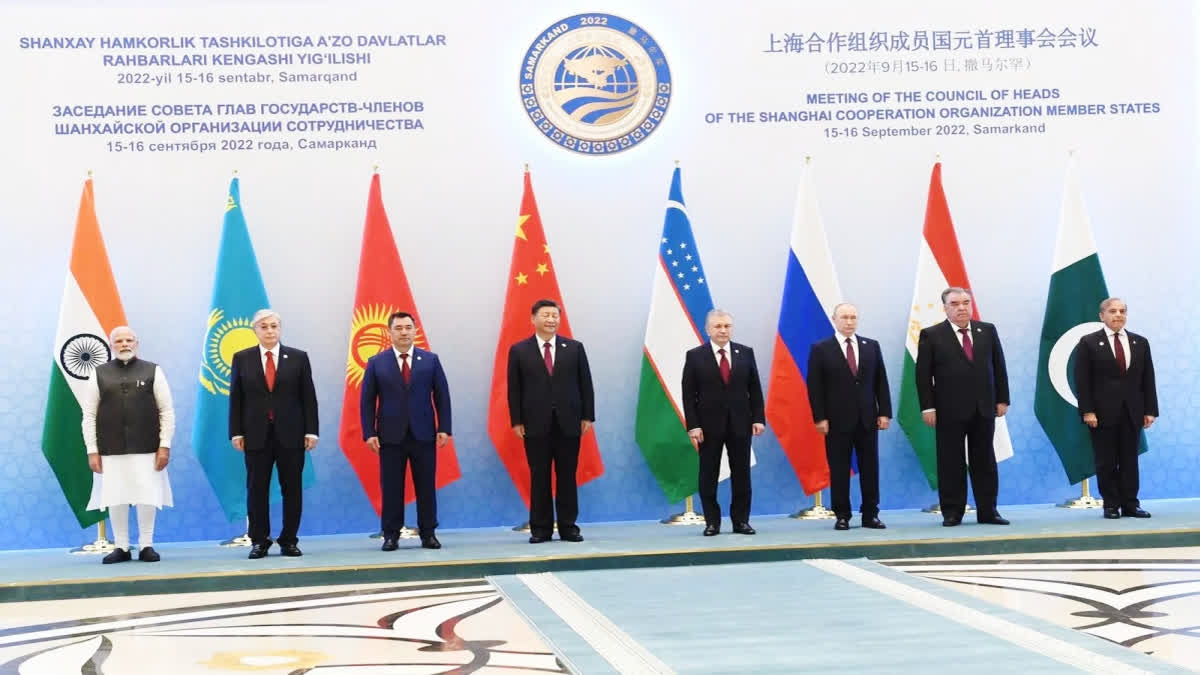New Delhi: Connectivity with the Central Asian region and the situation in Afghanistan will be among India’s priorities when Prime Minister Narendra Modi hosts the 23rd Summit of the Shanghai Cooperation Organization (SCO) Council of Heads of State on July 4.
This year, the Summit will be held in the virtual format with the theme ‘Towards a SECURE SCO’. The acronym SECURE stands for security; economy and trade; connectivity; unity; respect for sovereignty and territorial integrity; and environment.
All the SCO Member States, viz. China, Russia, Kazakhstan, Kyrgyzstan, Pakistan, Tajikistan and Uzbekistan, have been invited to attend the Summit. In addition, Iran, Belarus and Mongolia have been invited as Observer States. Turkmenistan has also been invited as the guest by India as the Chair.
Also read: SCO Foreign Ministers Meet: No handshake, Jaishankar's 'namaste diplomacy' stands out
The Central Asian region is a part of India’s strategic neighbourhood. There is potential to immensely boost trade between India and Central Asia but connectivity has been a problem due to New Delhi’s strained ties with Pakistan and the situation in Taliban-ruled Afghanistan.
“India joined the SCO to increase its footprint in Central Asia,” Nandan Unnikrishnan, Distinguished Fellow in the Observer Research Foundation, told ETV Bharat. “India is looking to access the Central Asian markets but these are all landlocked countries.” India’s trade with Central Asia stands at a little over $2 billion. However, this can increase immensely because of the region’s rich energy resources, including oil, gas and uranium.
“However, land connectivity between India and Central Asia has been hampered due to Afghanistan and Pakistan,” Unnikrishnan, who specialises in Russia, Central Asia and other former Soviet territories, said. “What is happening in Afghanistan will be a priority for India in the discussions during the Summit.”
With land connectivity via Pakistan and Afghanistan being ruled out, India is banking on the International North-South Transport Corridor (INSTC) for access to Central Asia, Unnikrishnan said. India, Iran and Russia had in September 2000 signed the INSTC agreement to build a corridor to provide the shortest multimodal transportation route linking the Indian Ocean and the Persian Gulf to the Caspian Sea via Iran and St Petersburg.
It is a 7,200-km-long multimodal network of ship, rail, and road routes for moving freight. The corridor has the capacity to move 20-30 million tonnes of goods per year. Apart from trade and connectivity, India has set up new pillars of cooperation after attaining the chairmanship of SCO in September 2022. These include startups and innovation, traditional medicine; digital inclusion, youth empowerment; and shared Buddhist heritage.
“In addition, India has worked towards fostering greater people-to-people ties that celebrate the historical and civilizational bonds between our nations,” the External Affairs Ministry said in a statement. “These include the various socio-cultural events held in Varanasi under the framework of the first-ever SCO Cultural and Tourist Capital for 2022-23.”
Since attaining the chairmanship of the SCO, India has hosted a total of 134 meetings and events, including 14 ministerial-level meetings. The SCO covers around 60 per cent of the area of Eurasia and 40 per cent of the world’s population. Its combined GDP is around 20 per cent of the global GDP.
Also read: "We should unitedly fight terrorism," Rajnath Singh at SCO Defence Ministers' meeting in Delhi



